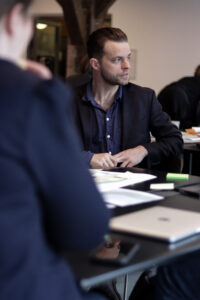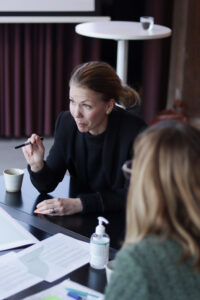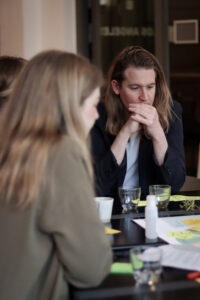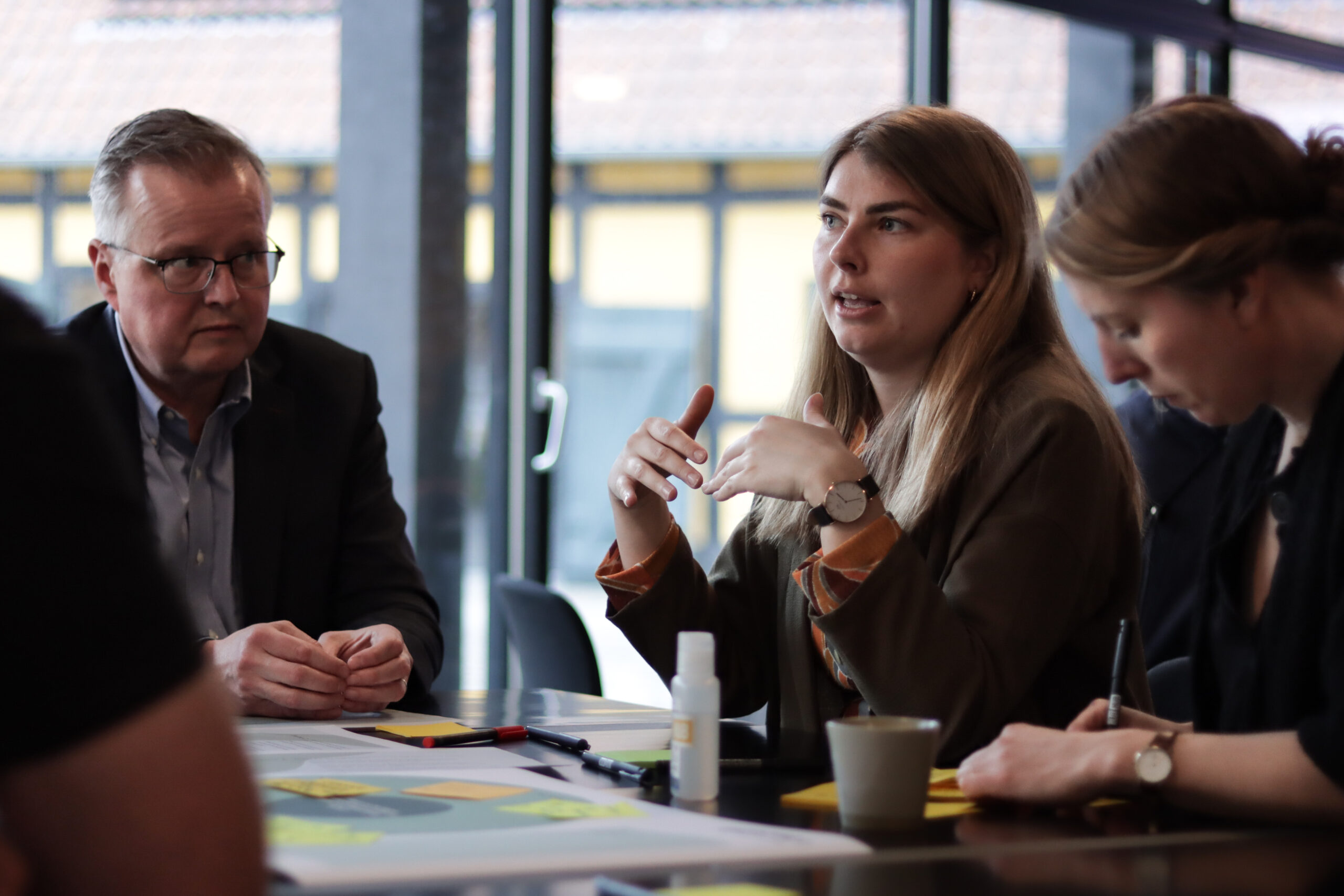At the conference “Nordic Circular Markets”, stakeholders from the Danish and Swedish building industries discussed how they can learn from each other to speed up the circular transition.
On March 30, BLOXHUB co-hosted a conference and workshop with the Embassy of Denmark in Sweden and We Build Denmark. The theme of the day was circular economy in the built environment in Denmark and Sweden, and how the two countries might learn from each other to speed up the circular transition.
Participants at “Nordic Circular Markets” included people from all parts of the value chain, and companies and organizations such as Skanska, NREP, Juul Frost Architects, NCC, Lendager, and the City of Stockholm.
In both Denmark and Sweden, the transition to circular economy is happening too slowly but the two countries have different strengths and challenges. We’ve asked a few of the participants to reflect on what they think, Danes and Swedes could learn from each other.
Inspiring Each Other to be Better
“Denmark is ahead of Sweden in terms of reusing building materials. You’ve done some projects that are way ahead of ours I would say, in terms of both progressive thinking and in terms of courage to try out new stuff.”
So says one of the Swedish participants, Jonathan Hummelman, who is a project manager at the Environment and Health Administration, City of Stockholm, where he works with circularity in the built environment.
Seeing that many companies operate in both Denmark and Sweden, and the countries also share a lot in terms of culture, there is ample opportunity for collaboration, according to him. He hopes to gain inspiration from the conference to bring back to his work in Stockholm:
“I think one of the most important things I can do in my role is to show others what has been done and what can be done in terms of circular economy. By doing so, you can give a vision that can change people’s perspective of the way we build,” says Jonathan Hummelman.
 Another Swedish participant, Joanna Berg, who is the regional manager of living in Stockholm at NREP, agrees that there is a lot of potential for collaboration and learning between the two countries:
Another Swedish participant, Joanna Berg, who is the regional manager of living in Stockholm at NREP, agrees that there is a lot of potential for collaboration and learning between the two countries:
“In my job as a residential developer in Stockholm we are looking at the projects that are done here in Copenhagen and other parts of Denmark and taking the learnings from those projects up to Stockholm, so we don’t have to make the same mistakes. We need to start moving faster together and collaborating and showing each other our good examples is a good way to do it.”
Learning from Swedish Structure
From the Danish side of things, there is also a lot to learn from Sweden. So says the director of Innovation &Sustainability and partner at Henning Larsen, Jakob Strømann-Andersen. In particular, he refers to the Swedish tradition for structure and declarations:
 “One of the things we can learn from Sweden is their sense of protocol. The Swedes have been great at making product declarations on their building materials for example. When we go to the supermarket to buy a carton of milk, we can see what’s in it, where it’s from, and so on. But in Denmark, that’s not possible when it comes to building materials. There isn’t the same transparency. The Swedes have a much stronger tradition for making environmental product declarations, and producers are met with requirements to do so,” says Jakob Strømann-Andersen.
“One of the things we can learn from Sweden is their sense of protocol. The Swedes have been great at making product declarations on their building materials for example. When we go to the supermarket to buy a carton of milk, we can see what’s in it, where it’s from, and so on. But in Denmark, that’s not possible when it comes to building materials. There isn’t the same transparency. The Swedes have a much stronger tradition for making environmental product declarations, and producers are met with requirements to do so,” says Jakob Strømann-Andersen.
He mentions another example as well: When a building in Sweden is to be torn down or transformed, it is a prerequisite to make a plan of the resource flow following the transformation. In other words, you have to document what you set out to do before you can do it.
“We might be able to inspire the Swedes to be a bit more innovative when it comes to circularity, but we can learn from the Swedes when it comes to structure, business, and planning. If we are to move forward, we need to learn from previous processes. I think we can learn a lot from each other’s different processes and create a better built environment on both sides of Øresund,” says Jakob Strømann-Andersen.
This event is part of a larger focus on circular economy. Throughout 2022 we will host different initiatives and workshops both in Denmark and abroad on the theme of circular economy. You can stay updated on coming events in our event calendar or our newsletter. If you want to know more about the conference, please contact Program Manager Torben Krab.



